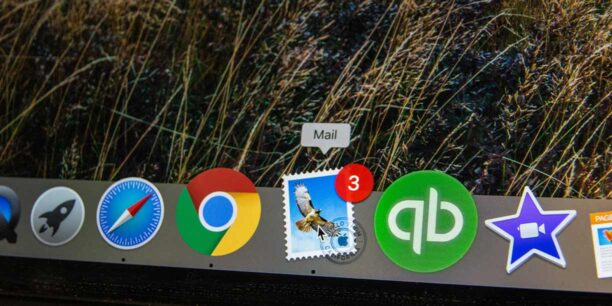The Dos and Don’ts of Nonprofit Holiday Email Marketing

While you should fine-tune your email marketing all year round, it requires some extra planning and attention during the last quarter of the year. Donors’ giving habits during the holiday season make it a crucial time for social impact organizations to ramp up their communications strategy. With the last few months of the year being so critical to your fundraising efforts, consider these “do’s” and “don’ts” of nonprofit holiday email marketing.
The DOs of Nonprofit Holiday Email Marketing
DO: Make More Asks Near the End of the Year
The last few months of the year warrant a specially tailored, amplified email marketing strategy. About 34% of all charitable gifts are made in the last three months of the year. Not only are people moved to give by the holiday season, but they also want to make their tax-deductible gifts by December 31st.
Your nonprofit holiday email marketing should leverage this sense of urgency and deliver more direct asks during this window. Start delivering holiday-branded appeals at least a week or two before Thanksgiving, and make a hard ask every single week in December. If you don’t ask, someone else will.
DO: Adjust Your Email Strategy If You’re Launching a Fall Campaign
While the typical year-end email campaign should begin a week or two before Thanksgiving, organizations that launch a specific fall campaign should appropriate their strategy. If you’re launching a fall-themed fundraising campaign (typically from September through November), all of your messages and appeals should be branded to your specific campaign during that time. Afterwards, your year-end appeals should still go out during the last two weeks of December.
DO: Segment Donors
No matter the time of year, people want to receive emails that are personally relevant to them. Improve engagement by making sure your nonprofit holiday email marketing delivers hyper-targeted messages to your audience. This requires you to segment your email list so you can send personalized emails to different groups of donors. To start, try splitting up your donors by:
- Volunteers
- Blog subscribers (who haven’t donated)
- Frequency of donations
- Last donation size
- Last donation date
DO: Link Appeals to Custom Donation Forms
Custom donation forms are a key element of successful nonprofit holiday email marketing. Instead of linking all of your emails to the same donation form, increase returns by linking them out to customized forms depending on the recipient.
If you segment your donor database by past average gift amounts—maybe a high-tier, mid-tier, and low-tier—you can send each group of donors to different forms with default gift ranges suited to their giving capacity. This way, a $25 donor and a $200 donor don’t get the same donation asks. This allows you to upgrade certain donors without mistakenly downgrading others.
DO: A/B Test Your Emails
Doing some A/B testing during these months will help you make data-driven decisions to improve your conversion rates. You have nothing to lose by running tests early on in your year-end campaign, and making changes halfway through to maximize year-end conversions. The worst case scenario is that a recipient still fails to donate, but a fine-tuned email can end up attracting a gift that a donor might not have made otherwise.
Test only one variable at a time. Split your donor base into separate groups, and send each one a different version of your variable. Track which version wins the most open and click through rates, and update your emails accordingly. You can test many elements in your email marketing campaign, such as:
- Subject lines
- Donate button shape, color, size, placement, copy
- Types of visual content included in your emails (infographic, video, photos)
- The storyline in your appeals
The DON’Ts of Nonprofit Holiday Email Marketing
DON’T: Give Vague Calls to Action
Appeals that say things like “any little bit counts” fail to inspire. This holiday season, make confident asks of your donors. Suggest concrete amounts that they can give to make a difference, and explain what that difference will be. Donors tend to respond to specific calls to action with defined results. For instance, you might say something like, “Give $10 to fill a child’s backpack with school supplies.”
DON’T: Slack on the Subject Line
Thirty-three percent of email recipients open messages purely off of the subject line. Your subject line is the first step to an effective email. Keep it short, urgent, and specific to motivate readers to open the message and get to your call to action. Show readers why your message is important, and why it needs attention now.
DON’T: Forget to Analyze Your Open and Click Through Rates
While you should be analyzing your email performance regularly, you definitely need to keep tabs on it as you ramp up your nonprofit holiday email marketing. It’s especially important to analyze open and click through rates so you can alter and segment your strategy accordingly.
For instance, if a recipient hasn’t opened two or three consecutive emails, you might want to avoid sending them any more asks until the last two weeks of the year. You don’t want to risk them hitting unsubscribe by continuing to flood them with messages.
If a donor has opened your emails but failed to click through, continue to send them messages until they do so. Try switching up your email narrative, visuals, calls to action, and other elements to test what donors respond to.
Once they make a donation, stop sending them appeals. Otherwise, you’ll give the impression you’re not paying attention to their gift, and your email blasts will irritate them.
DON’T: Annoy Your Mobile Device Users
Sixty-six percent of emails are being opened and read on mobile devices. It’s imperative that your emails are optimized for smaller screens, so that you can reach those donors who are opening your emails while on the go. This means you need to deliver responsive emails that format beautifully on any device. Many email marketing services, like MailChimp, provide pre-designed responsive templates.
Your supporters’ inboxes will be blasted during the last stretch of the year. Make sure your organization’s holiday emails cut through the noise by following these basic guidelines. Segment and personalize your asks, test them, and track their metrics to fine-tune your emails. When your nonprofit holiday email marketing reaches and engages supporters, you can see a big boost in revenue during the most important time of the year.
33% of all donations are made in December. Don’t miss out.
Subscribe to the Classy Blog
Get the latest fundraising tips, trends, and ideas in your inbox.
Thank you for subscribing
You signed up for emails from Classy
Request a demo
Learn how top nonprofits use Classy to power their fundraising.




